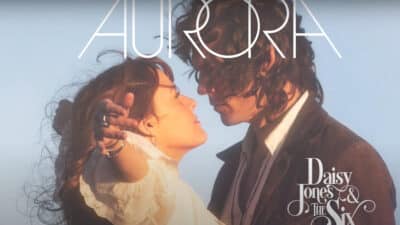Music
Review: The second week at Celtic Connections
With Glasgow’s varied Celtic Connections Festival up and running, guest bloggers Joanna Royle & Sam Law run us through the second week of shows.
Wednesday 25 January 2017
When faced with a motley looking crew led by a puckish, red-trousered flamingo of a flute player with a drifting upwards leg, one is usually at a Jethro Tull gig. As the offspring of a Tull uber-fan this is naturally an excellent thing. And Carlos Malta is certainly excellent. Capering around the stage beside his band, Pife Muderno, deliver a masterful elaborate percussive musical joke, into which Carlos sparks lightnings from miscellaneous obscure woodwind instruments. Celtic Connections is the first UK visit of this break-neck speed fusion of Celtic-Indian-Samba who have delighted Brazilian audiences for over 20 years. Hopefully it will not be their last.
They took the side stage because the Concert Hall is laid out with its conventional orchestral paraphernalia. Now the thing with trad is that it can be a big group affair: pub sessions for example. But the average pub session doesn’t have a brass section. Or a grand piano. The Unusual Suspects are big-band trad. Yes, that is a thing. Or rather, Unusual Suspects have made it their thing.
One of several influential collaborations that owe existence to Celtic Connections, this fluid extravaganza synthesises some of the most in-demand expertise in Celtic folk. On stage, knees bouncing for all the world like their fiddles are accompanying a pint at the Drovers Rest, artists from Cape Breton join native talent, including half of Flook in the wind section, and Manx tunes and dances from Ellan Vannin artists.
At the helm co-founder Corrina Hewat is a gracious hostess, whom one might quite like to adopt as an honorary aunt so good is she at shining light on the special qualities of each contributor. Yet whilst the majority of tunes this evening were composed by the players, it was the classic Silly Wizard ballad Queen of All Argyll that replayed in the head all the way home.
Friday 27 January 2017
In lads like Dosca and The Elephant Sessions, Shooglenifty’s much missed frontman Angus R Grant can rest easy, knowing that acid-croft has caretakers blazing onto the scene to create frenzy for a new generation. If neither outfit are taking the sampling-based electronica route of other disbanded favourites such as Croft number 5, they are nevertheless creating a marvellous rumpus with a neo-trad ceilidh funk that has taken The Elephant Sessions all the way to Glastonbury.
This evening the Oran Mor basement is hoaching, with both venue and musical prospects attracting a younger, hipper, crowd than seated festival events. Celtic Connections is the launch for many aspiring young musicians, and Dosca are one of them. Back for their third year at the festival, the lads who study at the Royal Conservatoire here in Glasgow have been popping up at all the prominent events in Scottish trad currently, competing fiercely for upcoming awards including Battle of the Folk Bands at Edinburgh Tradfest next May.
More immediately, fiddle player Charlie Stewart is a finalist in the BBC Young Traditional Musician of the Year that will wrap up Celtic Connections next weekend. They belt through a series of infectious high-octane sets, to which it was no more possible to stand still than a sweetie-stuffed kid at a party. Then with a perfunctory wave of the hand they were gone, leaving the elated crowd to be picked up by highland headliners The Elephant Sessions.
Projectiles of women’s undergarments adorning the stage? Wild fans screaming the perennial Glasgow gig chant “here we f**king go”? Surely we are at the latest in pretty-boy pop rock, right? Wrong. This sort thing is generally uncommon in the folk music world, but seemingly not for the chaps in The Elephant Sessions who are grinning from ear to ear. This is almost definitely the gig of the festival, as the (semi)-curly mopped crew create a monstrously exciting wall of sound that has the audience pulsating.
It is the kind of night where you can’t take thoughtful critical notes about the tunes, because you’re jumping about, sweat-drenched with heady adrenaline-fuelled elation. Experts in the field have been calling The Elephant Session’s debut album “the best since [Shooglenifty’s] Venus in Tweeds”, and surely looking down on the future of Celtic fusion, Angus could only agree.
Sunday 30 January 2017
What could be more delicious than a musical Sunday lunch? Impressed last year by the melancholically-tinged buttery voice of Hannah Fisher (then opening for Turin Breaks), we head back to see how her sound has evolved in the Celtic Connections ‘New Voices’ afternoon slot. She may be nervous, but, as an encouraging heckler hollers out the stage, she “sounds great”.
Though not on her debut EP, the stripped-back wistful love song Constant on My Mind has a folky spaciousness that will capture the heart Amy Macdonald fans, whilst Old Ways moves indie-Celt towards classic rock. Closing with the powerful fiddle-based 20 Autumns Gone, vibrations of Hannah’s history with Idlewild may underpin her music, but she is tuning it with a pensive sonority that is all her own.
By teatime half way through the festival it seems that even the most committed Celtic Connections fans find themselves needing a night in, and whilst there is a solid turnout for the Mark O’Connor Band the beautiful chandeliers of City Hall cast light on a fair few empty pews.
Opening for them, Graham MacKenzie is another young artist who has benefitted from the patronage of Celtic Connections alongside the portfolio of traditional arts support in Scotland. Showcasing his debut album, Crossing Borders, Graham is composing in the space where classical orchestral music meets traditional folk, crossing the borders of Celtic cultures that have influenced him. Nevertheless it is the tunes he has written for the people he loves that hold the ear. The slow airs Tune for Grandad, and Mrs MacKenzie’s Fairwell to Culloden Academy, written as an impoverished student as a gift on his mother’s retirement, stand out as beautiful tunes in their own right.
Whilst their multi-award decorated patriarch has been at the forefront of bluegrass for 40 years, the Mark O’Connor Band is a relatively recent family venture. With his wife, son, future daughter-in-law and a couple of other luminaries in the country scene, in under a year Mark has turned out yet another grammy-nominated album.
In what he calls his “proudest project yet” the audience seem to be eavesdropping on a Sunday night domestic session. A virtuoso session which moves seamlessly across the genres of roots music: a bit of bluegrass here, a spot of old-time there, some straight country, and, nearing the end, a radiant acapella African-American gospel singalong.
Mark is the teacher, Kate the deadpan wit, and he sensibly leaves his son’s fiancée to do a lot of the song introductions. Tongue-in-cheek she assures us not to worry that that her husband-to-be writes sad songs as he is really a quite happy chap; and as father and son embark on Macadonia she shoots a metaphoric wink to the audience about the remarkable scarcity of double mandolin tunes in the Americana repertoire.
Meanwhile Mark is just touring about being hotshot on all the instruments in the room whilst the music swirls around his brilliance. Part way through Little Maggie – a song which his eponymously named wife points out is one in a long line of musical Maggie reprobates – Mark drops the mandolin and wanders off to get the double base for a skilful slap solo.
Nevertheless the musical symbiosis between each of the two couples is the dynamite of the group. Nowhere does this stand out more than in the pensive air of What have I been Saying. This poignant rumination from an elder gent calling the young to action is resonant in these troubled political time, but for Forrest and Kate it is also the song that brought them together. “I didn’t want to be too obvious,” quips Forrest of writing the song for her light yet powerful voice. But as the middle weekend of Celtic Connections draws to a close it is obvious that we, like her, have been very impressed indeed.
Meanwhile, next door in the even-grander confines of the Old Fruitmarket venue, punters are being taken on a transatlantic odyssey. Opening easy, Louisiana outfit The Jon Cleary Trio bring a taste of New Orleans to the sodden Glaswegian Sunday. With a crowd rinsed out by a few too many drinks at last night’s late-running festival club, there’s no harm in channelling the laid-back charm of The Big Easy, and though some can’t resist getting up to swing hips at the deeper-cut grooves on-display, the overwhelming impression left by the Grammy-winning bluesmen is of a deep musical massage, prepping us for the hardships of another working week.
A far less luxuriant proposition, Dirk Powell brings his taste of musical Americana from a few hundred miles further east. As signalled by his dedication to the legendary folk trailblazer in 2016 novel Dirt Road, Booker-winning Scottish author James Kelman’s affinity with the rough-edges and tangled grooves of American roots music is almost unfathomable.
That book’s events take place in those roots Southern heartland – it’s protagonist on a pilgrimage towards zydeco country. Tasked with delivering a soundtrack for the upcoming cinematic adaptation, Powell has assembled an impressive crew of supporting players – from his own daughters, to carefully-selected Scots contributors, to legends of the American soul and blues traditions – and many appear onstage tonight.
A rocky traverse through the territory of Appalachian mountain music, textured with road-worn grit and bourbon warmth, it might be a little on the conceptual side for some of this evening’s assembled faithful, but there’s no denying the skill and songwriting involved.
Celtic Connections continues across Glasgow until the 5 February 2017. Grab tickets to individual shows through Ticketmaster.co.uk.









